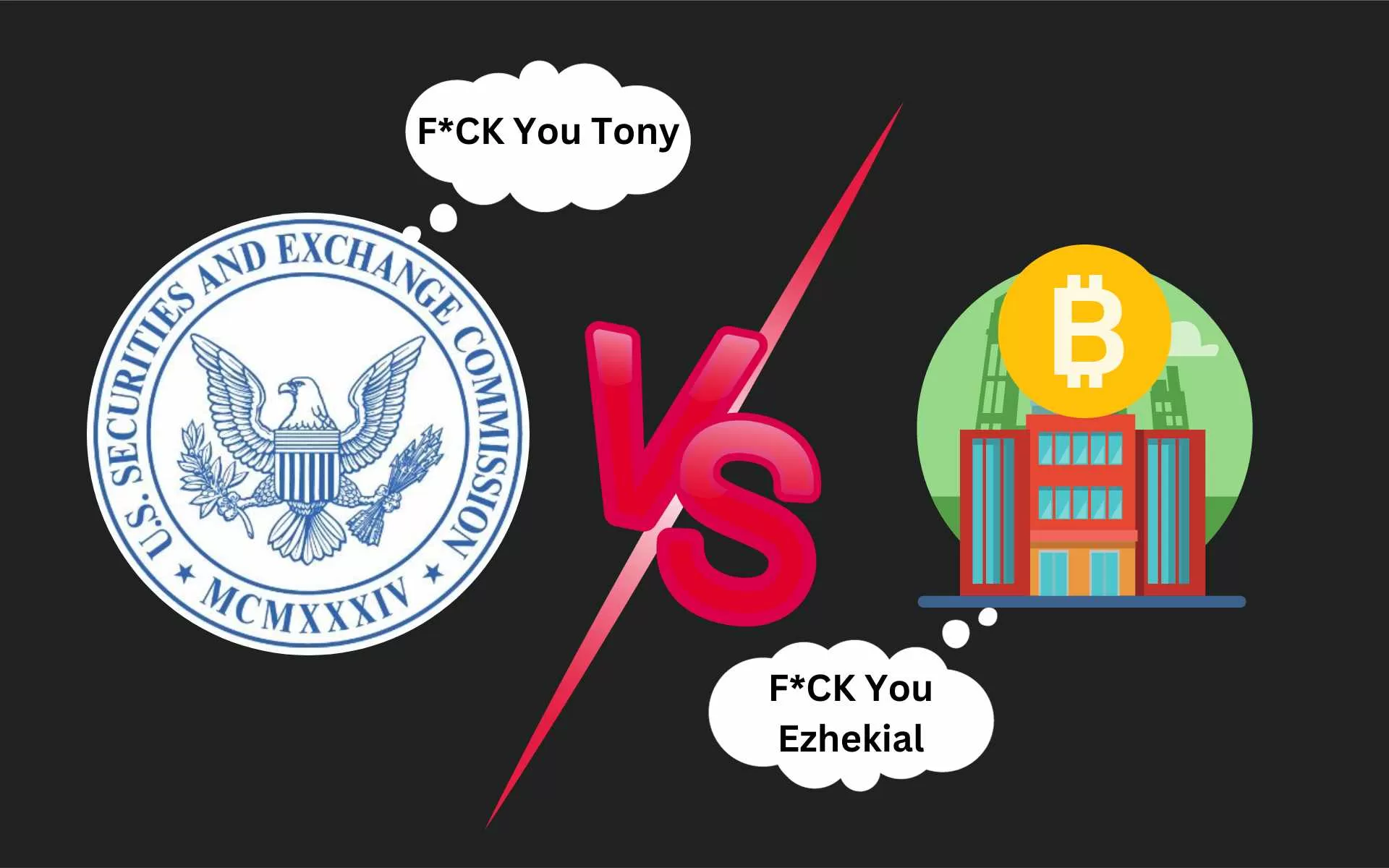The US Securities and Exchanges Commission has registered more than 130 cases against various crypto companies. However, it is not doing things just because it has the power. It is important to understand that it acts as a regulator of securities in the USA which includes a lot of financial instruments like the Equities, ETFs, Convertible Bonds and much more.
Below are five points that I think compels the US SEC to take actions against cryptocurrency-related companies despite losing cases against Ripple and Grayscale.

Table of Contents
1. Lack of Laws
There are no clear and well defined laws in the USA for crypto-focused companies. The designation of a body for handling crypto-related matters by law not only makes it easier for authorities but also makes the regulators much more approachable.
Further, by having clear well defined laws, even with the harshest punishments, limits the power of authorities against acting in bad faith. This was one of the criticisms made by the bench in the US Congressional Hearing on the SEC.
2. Lawful Mandate
The SEC is lawfully mandated to regulate securities in the US economy as per the Securities Exchange Act of 1934. This gives the SEC the powers to act as regulators for anything that can be considered as a security.
However, that classification becomes vague in several areas such as cryptocurrencies simple because the law predates the concept of cryptocurrency and blockchain. This vague classification allows parties (both companies and the regulators) to interpret laws as per their own convenience.
The US SEC interprets securities as something which entails a sense of profit as per the Howey Test. However, this classification does not clearly indicate things about digital currencies or assets.
Hence, when a conflict arose between Ripple and the SEC, the matter had to be solved in the court. The US District Court for the Southern District of New York, with the presiding Judge Analisa Torres judged in favour of Ripple when it came to retail sales.
I have pointed out a couple of problem with this approach of getting to the courts in case of conflict.
- First, it takes a lot of time, effort and money to decide on a simple thing.
- Secondly, this approach is not suitable for smaller companies. Ripple alone spent $200 million against the SEC in a single case.
3. The SEC Fears Losing Authority
If the SEC loses authority to regulate crypto, it might only be relevant to stock-based securities in the future. I am yet to see any agency accept that verdict in my 8 year trading experience.
Another contender for Crypto Regulations in the USA is the CFTC which is already regulating Bitcoin Futures ETF. The SEC might be worried to lose control and regulatory powers over one of the most potent assets of the future.
4. Bureaucratic Procedures
In the world of bureaucracy and academia, there is a well laid out procedure for everything. Even a slight deviation from such procedures is frowned upon.
The current head of the SEC, Gary Gensler comes from a mixture of the two. He has bureaucratic as well as academic background.
However, crypto companies have a different approach to laws. They want the laws to adjust according to their needs, which is true for all businesses. However, many of them are also operating in a way that falls in the grey zone between legal and illegal. This compels the SEC to take up the fight against those companies which are doing grey activities.
In the absence of a well defined law, several crypto companies have flouted already existing rules to make some extra money.
In the absence of the same law, the SEC considers it as its bureaucratic responsibility to safeguard user interest. It might have overstepped in many cases, but its intention seems to be motivated by investor protection.
5. Digital Crime
The rise of digital crime is yet another concern of cryptocurrency world. Recently, in early November, the Poloniex exchange suffered a $110 million dollar hack. Before that it was found that crypto hacks stole funds worth $320 million in the September month.
The SEC’s pro-activeness surely has dented the crypto-industry in the USA, but it has also safeguarded several investors by taking an overreaching approach.
Conclusion
The lack of clear laws and guidelines is the core factor of clash between SEC and the crypto industry. But laws take time because they cannot be changed at will. Till then, a best approach would be for both the SEC and crypto companies to discuss the matter between them before leveling charges or going to the courts of law.




